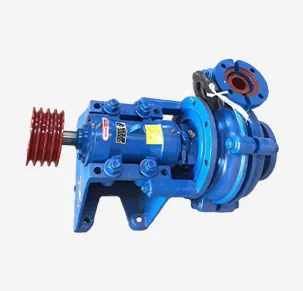Khmer
- Afrikaans
- Albanian
- Amharic
- Arabic
- Armenian
- Azerbaijani
- Basque
- Belarusian
- Bengali
- Bosnian
- Bulgarian
- Catalan
- Cebuano
- Corsican
- Croatian
- Czech
- Danish
- Dutch
- English
- Esperanto
- Estonian
- Finnish
- French
- Frisian
- Galician
- Georgian
- German
- Greek
- Gujarati
- Haitian Creole
- hausa
- hawaiian
- Hebrew
- Hindi
- Miao
- Hungarian
- Icelandic
- igbo
- Indonesian
- irish
- Italian
- Japanese
- Javanese
- Kannada
- kazakh
- Khmer
- Rwandese
- Korean
- Kurdish
- Kyrgyz
- Lao
- Latin
- Latvian
- Lithuanian
- Luxembourgish
- Macedonian
- Malgashi
- Malay
- Malayalam
- Maltese
- Maori
- Marathi
- Mongolian
- Myanmar
- Nepali
- Norwegian
- Norwegian
- Occitan
- Pashto
- Persian
- Polish
- Portuguese
- Punjabi
- Romanian
- Russian
- Samoan
- Scottish Gaelic
- Serbian
- Sesotho
- Shona
- Sindhi
- Sinhala
- Slovak
- Slovenian
- Somali
- Spanish
- Sundanese
- Swahili
- Swedish
- Tagalog
- Tajik
- Tamil
- Tatar
- Telugu
- Thai
- Turkish
- Turkmen
- Ukrainian
- Urdu
- Uighur
- Uzbek
- Vietnamese
- Welsh
- Bantu
- Yiddish
- Yoruba
- Zulu
Telephone: +86 13120555503
Email: frank@cypump.com
វិច្ឆិកា . 13, 2024 07:29 Back to list
sewage pump for septic tank
Understanding Sewage Pumps for Septic Tanks
Sewage pumps play a crucial role in the maintenance and efficiency of septic systems. A septic tank is an underground chamber where household wastewater is collected and treated, allowing for the safe disposal of sewage. When the waste in the tank reaches a certain level, it is essential to pump it out to prevent backups and system failures. This is where sewage pumps come into play.
Understanding Sewage Pumps for Septic Tanks
Choosing the right sewage pump for a septic tank involves considering several factors, including the pump's horsepower, material, and the specific needs of the household. Most residential sewage pumps range from ½ to 2 horsepower, with larger pumps capable of handling more substantial volumes of waste. Additionally, the pump should be constructed from durable materials, such as cast iron or thermoplastic, to withstand the corrosive nature of sewage.
sewage pump for septic tank

The installation of a sewage pump is equally as important as its selection. Proper placement within the septic system can significantly impact the pump's efficiency and longevity. Ideally, it should be positioned at the lowest point of the tank to ensure that waste can flow easily into the pump without obstruction. It is also crucial to adhere to all local codes and regulations when installing a sewage pump to avoid legal issues and ensure optimal operation.
Regular maintenance of a sewage pump is vital for its performance. Homeowners should conduct periodic checks on the pump's operation, ensuring that it is running efficiently and free from clogs. Listening for unusual sounds and monitoring for electrical issues can prevent more costly repairs down the line.
In summary, a sewage pump is an essential component of any septic system. By understanding its function, selecting the right type, ensuring proper installation, and performing regular maintenance, homeowners can ensure their septic system operates effectively. This proactive approach helps prevent backups and promotes a healthy and efficient waste management system.
-
China Small Slurry Pump Manufacturer - High Efficiency Small Centrifugal Slurry Pumps for Mining & Industry
NewsJun.24,2025
-
Custom Drilling Mud and Slurry Pump Supplier - High Efficiency, Tailored Solutions
NewsJun.10,2025
-
Supply Vertical Submersible Sewage Pump High-Efficiency WQ/QW Pumps Supplier
NewsJun.10,2025
-
Premium Sewage Ejection System & Pumps Efficient Waste Removal
NewsJun.09,2025
-
Premium Wholesale Slurry Pump Impellers Durable & Efficient Slurry Handling
NewsJun.09,2025
-
Top Sewage Pump Companies Durable Industrial Solutions for Efficiency
NewsJun.09,2025










